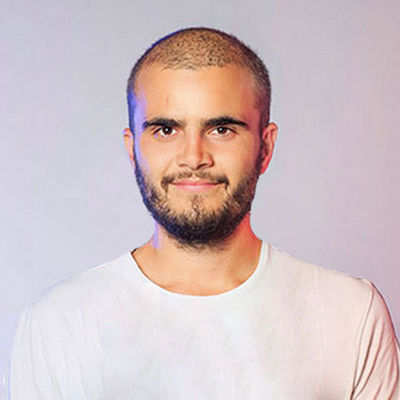Eduardo Gimenez-Cassina Bergareche
The Master in Museology programme teaches you more about how society works than how to run a museum, and this is exactly its uniqueness and strongest point (the latter you can get to learn during the internship module). Be ready to be challenged and to tackle notions and ideas from fields that go well beyond your (current) understanding.
I have always been interested in space, and how we relate to it. As a graduate of Architecture, I found that I had a good technical understanding of space, but i wanted to go deeper, and understand how spatial heritage works: historical centers, city branding, ... these landscapes of the mind, and how they affect our identity and our everyday. Museology felt like (and indeed was) a fantastic introduction into this realm.
I wrote my thesis on building preservation in Beijing, where I lived for one year, whilst researching for it. Upon my return to Europe and graduating from the Reinwardt Academy, I moved to London where I studied Brand Development and Urban Sociology at Goldsmiths. I then moved to Cape Town to carry out urban research on contemporary heritage, particularly looking at Chinese Commercial Landscapes in Southern Africa. After presenting my final paper, I moved to Moscow, where I joined the Strelka Institute. Working as an urban researcher there, I focused on vacant office buildings in the Financial and Business District of the Russian capital.
After finishing the Strelka programme, in 2014, I co-founded METASITU, a research-based art studio with Liva Dudareva. We look at issues that emerge from the inhabitation of the territory and develop strategies of resilience. We work within the framework of Ecumenopolis, or the understanding that the whole world is one continuous piece of urban fabric. Our medium is largely video art, but our body of work is also supported by performance art, writing, lecturing, and workshops.
Our practice was nomadic for the first 18 months, argely traveling through the Middle East, East Africa and Eastern Europe.
METASITU has been based in Athens since 2015, where we act as artistic-directors for metamatic:taf, one of the oldest independent art spaces in Greece.
THE DESTINATION ECONOMY: A proposal for the social accountability of the ornament museum
In 1997 the world witnessed an urban miracle: the previously industrial and gritty city of Bilbao, re-emerged from its ashes transformed as a destination of international prestige for cultural tourism. At the centre of this Pygmalionesque transformation was the new branch of the Guggenheim Foundation, an architectural experiment signed by Frank Gehry. The project not only challenged preconceived notions of what a museum should be, but also transformed the city's financial model into a Destination Economy.
What role can the museum play in order to improve the lives of those around it? Are museums maximizing their potential as role models for the community? Can the brand of a museum percolate and be adopted by its community or vice versa? Can the Bilbao miracle be replicated?
This thesis explores the role of the museum within the framework of a Destination Economy, and analyses its potential not only in terms of urban or economic development in the community, but also in terms of its social impact, sketching a strategy that can take the catalyst model further. Integrating the local brand and social accountability into the museum is crucial for its sustainable development.
Looking at one of the world’s fastest changing locations, the People's Republic of China, the thesis analyses two case studies, Destination Economies that use heritage as their main resource: QianMen street in Beijing and the village of Cuandixia. These two projects contextualize the exposed theory and explore different ways in which the lives of the residents could be improved within the proposed theoretical framework.
